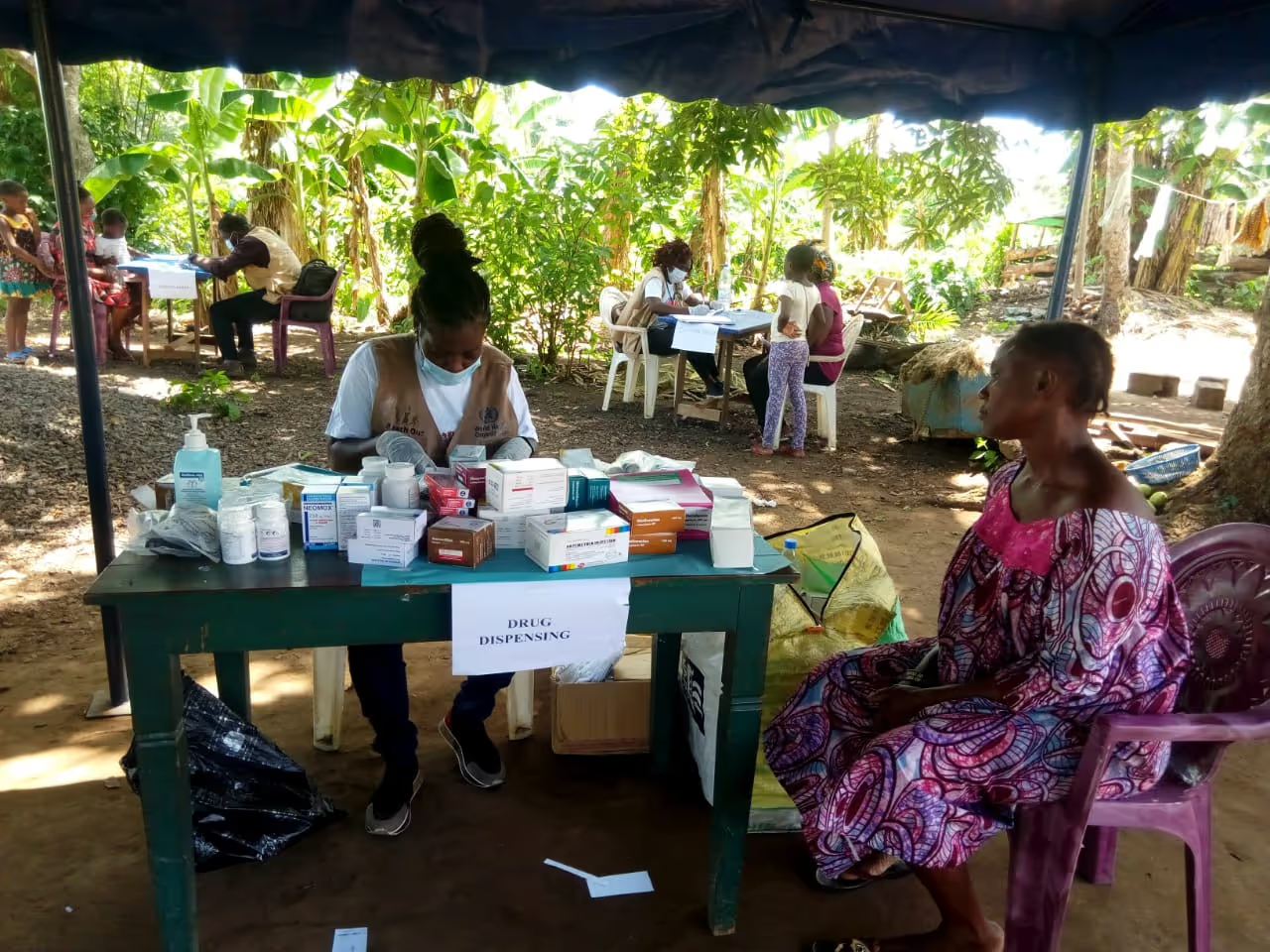Comparing Primary Health Care Delivery Models in Conflict Affected Settings of Cameroon and Nigeria

Project overview
In conflict-affected settings, health service delivery is compromised by deteriorated systems and access barriers. This research explores nine Primary Health Care (PHC) delivery models used in Cameroon and Nigeria, highlighting the factors influencing their choice, and proposes a framework to improve PHC service delivery and quality in humanitarian contexts.
Countries
Cameroon
Nigeria
Organisations
Reach Out Cameroon
Partners
University of Cambridge (United Kingdom), University of Buea (Cameroon), University of Maiduguri (Nigeria), Herwa Community Development Initiative (Nigeria)
Area of funding
Humanitarian Research
Grant amount
£99,903
Start date
01
October
2021
End date
01
June
2023
Project length (in months)
20
Funding calls
Focus areas
No items found.
Topics
Health systems and services
Status
Closed
Project solution
This project offers [specific solution or intervention] to tackle [challenge]. By implementing [strategies, tools, or innovations], the project aims to achieve [desired outcomes]. The approach is designed to [specific actions or methods] to bring about meaningful change in [community, region, or issue area].
Expected outcomes
This project aims to achieve [specific outcomes], such as [measurable results, improvements, or changes]. The expected impact includes [benefits to the target community, advancements in research or innovation, or long-term effects]. By the end of the project, we anticipate [specific changes or milestones] that will contribute to [broader goals or objectives].
Principal Investigators: Dr Rosalind Parkes-Ratanshi (PI) and Dr Tendongfor Nicolas (Co-PI)
Research Snapshot: Primary health care delivery models in conflict-affected settings
Exploring primary health care (PHC) delivery models in conflict-affected regions of Cameroon and Nigeria, this study presents evidence-based strategies for improving access and quality of care in these fragile environments.
[.cta_link]Read the Snapshot[.cta_link]
What did the study set out to achieve?
With 2 billion people living in conflict settings globally, access to healthcare for displaced populations is highly constrained. In the protracted crises of North West and South West Cameroon, 27% of health facilities are non-functional, and 26% in North East Nigeria are closed. Humanitarian organisations deploy various PHC models to deliver care, but evidence guiding their selection is sparse. This study aimed to compare different models of primary health care (PHC) delivery in conflict-affected areas of Cameroon and Nigeria, with the goal of understanding which models work best in these settings.
What were the key findings?
- Nine PHC delivery models were identified. The most common models include health facilities, community-based interventions, and mobile clinics, each with limitations.
- The choice of model is influenced by several factors including stakeholders, services, outer and inner organisational setting factors, coordination and assessment of advantages/disadvantages.
- There is significant clustering of service providers in geographic proximity, with national and community-based organisations playing a prominent role.
- However, humanitarian organisations reported challenges with service quality and maintaining standards, despite most providers having quality frameworks in place.
- A lack of coordination and integration in service delivery was identified, resulting in unmet needs, siloing of services, and gaps in certain geographies.
What does this mean for policymakers and practitioners?
The findings suggest there is value in further research exploring outcomes of integrated approaches to delivering comprehensive PHC, which can address unmet mental health and non communicable disease (NCD) needs. A decision making framework was developed that can guide the selection of appropriate PHC models in complex environments like Cameroon and Nigeria, which will be presented in a forthcoming publication.
Hybrid models of care (using two or more modalities) could be considered for service delivery in one geographical area, to expand service coverage and quality. The humanitarian reporting matrix could be improved, to reflect which models of care are used within specific geographies, enabling gaps to be addressed by coordinating complementary models of care.
Humanitarian actors must adopt a coordinated, evidence-based approach to PHC service delivery in conflict-affected settings. This research highlights the importance of delivering services using hybrid models of care (a combination of two or more models) which can allow for a wide range of services to be offered and improve access to quality care. Evidence suggests the value of enhanced community involvement in service delivery and coordination.
No items found.
Project delivery & updates
Stay up to date with the latest developments from this project. Here, you will find details on what has been delivered, resources created, and regular updates as the project progresses. Access key documents, reports, and other materials to see how the project is making an impact.
No resources/updates have been published yet for this project. Sign up for our newsletter to stay informed about upcoming publications and updates!
Join our Newsletter
Resources
Exploring factors influencing the selection of primary health care delivery models in conflict-affected settings of North West and South West regions of Cameroon and North-East Nigeria: A study protocol
Journal article
LEARN MOREPrimary healthcare delivery models in African conflict-affected settings: a systematic review
Journal article
LEARN MOREResearch Snapshot: Primary health care delivery models in conflict-affected settings
Research snapshot
LEARN MORELatest updates
No items found.


